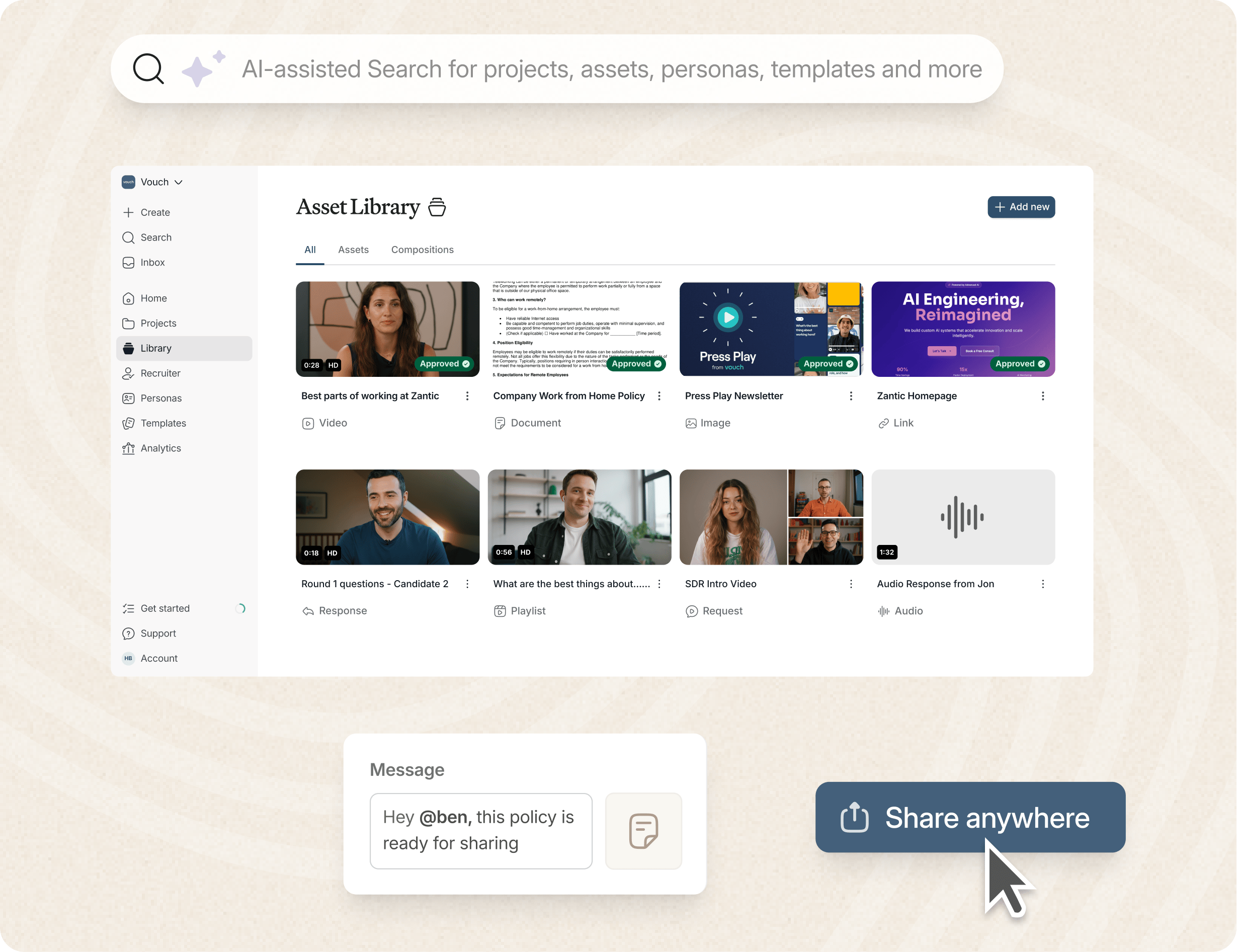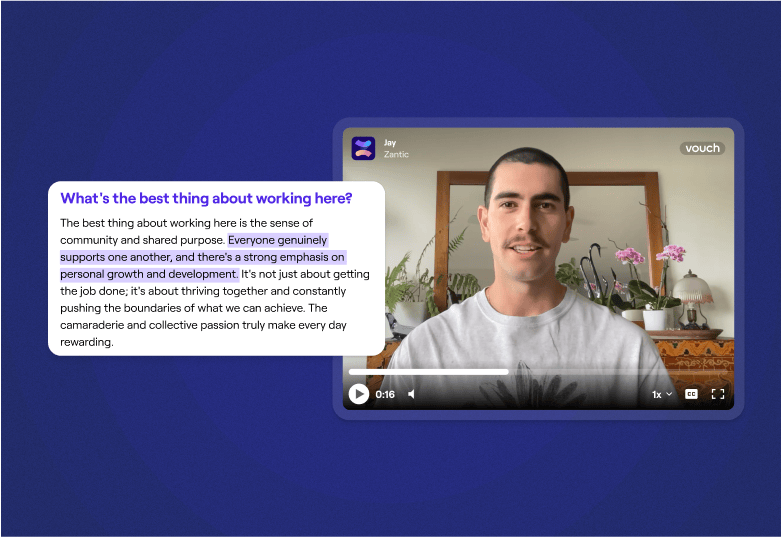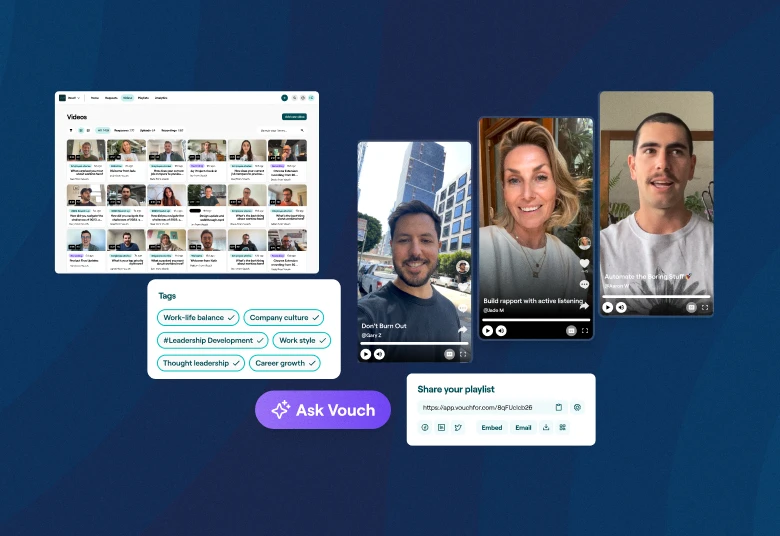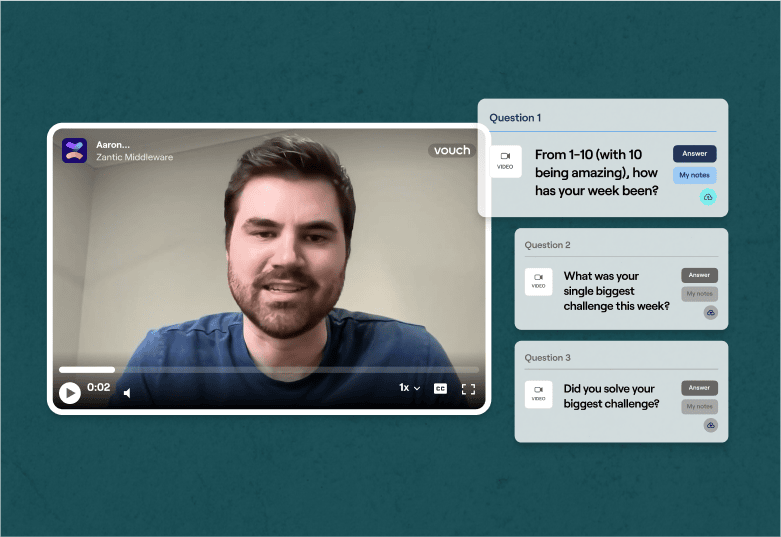Talent development is more than an HR term - it's a mindset that impacts your entire workforce, from your C-suite team to your junior employees and trainees.
In today's competitive job market, companies need to grow their people from within to thrive. Whether it's building leadership skills, closing skill gaps, or promoting a culture of continuous learning through modern microlearning techniques - effective talent development is crucial for long-term organizational success.
But what does talent development really mean, and how can it transform your workplace?
In this article, we'll break down what talent development is, its importance, how organizations implement it, and data and insights from 2026 to give you a real-world understanding of its impact.
Let's dive in.
What is Talent Development?
Simply put, talent development refers to the strategic process of improving the skills, knowledge, and competencies of employees to meet both individual career goals and organizational objectives.
Talent development is an essential part of human resource management aimed at creating a high-performing workforce.
Talent development is vital for bridging any skills gaps, as well as ensuring that employees have the necessary job skills to keep pace with evolving industry demands.
Whether it's technical expertise or soft skills like your team's communication and leadership, talent development programs give employees the tools to succeed.
The AI-enabled workspace for talent teams.
- Unified workspace for talent teams
- Accelerate hiring with AI tools
- Auto-generate polished hiring and employer brand content
- Easily repurpose assets across all channel

What Are The 5 Key Components Of An Effective Talent Development Strategy?
An effective talent development strategy is essential for ensuring that your workforce is continuously improving and aligned with your overarching goals.
The five key components of a robust talent development strategy are:
1. Clear Alignment with Your Organizational Goals
Your talent development strategy should be closely aligned with the company’s overall business objectives. This ensures that the skills being developed directly contribute to the company's success and help employees perform tasks that meet the strategic business goals.
2. Individualized Employee Development Plans
Customized learning and growth plans for each employee, based on their career aspirations, skills, and current performance, are vital. This personalized approach increases engagement, allows for targeted growth, and ensures that your employees feel valued and supported in their personal and professional development.
3. Continuous Learning Tools
Providing access to ongoing learning and development resources, such as workshops, internal training videos, mentorship programs, and on-the-job training, helps employees stay competitive in their roles. It encourages a culture of continuous improvement and innovation.
4. Leadership Development
Identifying and nurturing potential leaders within the organization is critical. A talent development strategy should focus on equipping future leaders with the skills needed to manage teams, drive change, and lead effectively. Leadership training programs and succession planning are key components.
5. Performance Measurement and Feedback
Regular feedback and performance evaluations are essential to ensure that the talent development efforts are effective. By tracking progress and adjusting the strategy as needed, organizations can maintain alignment between talent growth and business needs. Implementing key performance indicators (KPIs) for development initiatives helps monitor success.
These components ensure that a talent development strategy remains dynamic and responsive to both individual and organizational needs.
What Are 10 Statistics On Talent Development?
Talent development is more than just filling immediate skill needs—it's about long-term growth. Here's why it's crucial:
- Closes the Skills Gap: According to recent reports, 87% of executives state that their companies are facing skill gaps in 2024 (source). Talent development helps identify and address these gaps by providing targeted training.
- Increases Employee Retention: Employees who are given opportunities to learn and grow are far less likely to leave. In fact, companies that offer professional development programs see retention rates increase by 30% (source).
- Aligns with Business Goals: A well-implemented talent development strategy ensures that employees' skills are aligned with the company's organizational goals and business objectives.
- Prepares Future Leaders: Talent development programs help prepare high-potential employees for future leadership roles, ensuring smooth transitions when key positions need to be filled.
- Boosts Organizational Performance: Investing in employee development has a direct impact on organizational performance. A study from the Association for Talent Development (ATD) showed that companies that invest in comprehensive talent development programs have a 218% higher income per employee than those that don't (source).
- Skill Shortages: According to Deloitte's 2024 Talent Report, 76% of companies cite talent shortages as a significant risk to business growth.
- Retention and Development: Organizations that offer continuous learning opportunities have employee retention rates that are 3.5 times higher than those that don't.
- Professional Development: 68% of employees in 2024 stated that the availability of professional development opportunities directly influences their decision to stay with a company.
- Training Impact: A report by PwC in 2024 found that companies investing heavily in employee learning programs saw a 30% increase in overall organizational performance.
- Future Leadership Gaps: A Korn Ferry study from 2024 revealed that nearly 67% of organizations lack a strong leadership pipeline, making succession planning a top priority.
FAQs
What is talent development?
Talent development is the process of improving employees' skills to align with both individual and organizational goals.
Why is talent development significant?
It helps close skill gaps, boosts employee engagement, and prepares companies for future challenges.
What are some examples of talent development programs?
Examples include leadership training, job rotations, personalized learning, and continuous learning initiatives.
How does talent development impact employee retention?
Employees with opportunities for growth and learning are more likely to stay, boosting retention rates.
What is the role of succession planning in talent development?
Succession planning prepares employees for future leadership roles, ensuring a smooth transition when needed.
How do companies measure the success of talent development initiatives?
Success is often measured by employee performance, retention, and alignment with business objectives.
How do you close skill gaps through talent development?
By identifying gaps through skills assessments and providing targeted training programs.
Conclusion
Talent development is a crucial investment in the future of both employees and organizations. It builds a pipeline of future leaders, closes skill gaps, and promotes a culture of continuous learning.
For companies to thrive in today's competitive job market, focusing on talent development is no longer optional, it's essential for sustainable growth.
Whether through leadership development, specialized training, or personalized learning paths, talent development helps align individual employee ambitions with organizational objectives. The result? Business success and high-performing workforces that are prepared for the future.
Vouch Transforms Your Talent Development
Loved by companies like Canva, Nike, Cisco, HubSpot, Amazon, and more, tools like Vouch make leveraging video in your business communication, talent development and recruitment remarkably easy.
Be sure to book a Vouch demo today and chat with a video training expert.
You might also like

Elevate Your Brand Today With Vouch
Discover how Vouch can accelerate talent acquisition while helping you stay on-brand.






